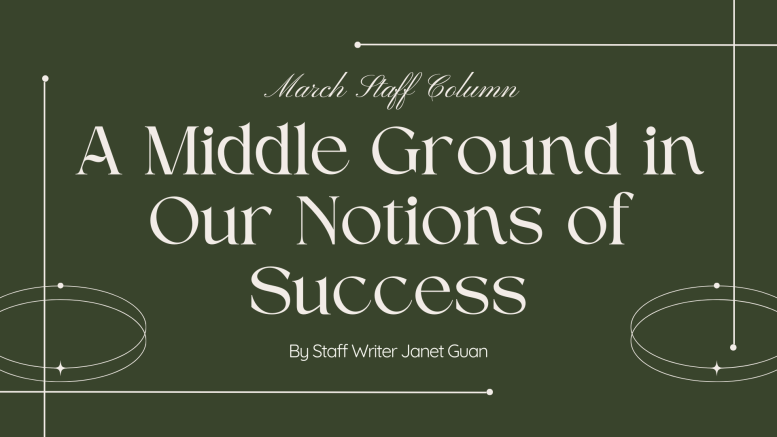By Staff Writer Janet Guan
Wake up. Work. Sleep. Repeat. I have always equated success with perpetual productivity, whether it be losing a few hours of sleep for a test or skipping an outing with friends to study. I loved to work, until work stopped being productive. The days I felt too exhausted to run the productivity marathon, I gave up working altogether, spending entire afternoons doing the equivalent of nothing and sleeping later just because I could. I labeled these days as “unproductive” and therefore, inconsequential to my happiness or well-being. It shouldn’t be surprising that relying on our productivity for personal satisfaction is an impossible game, yet we play it all the time. Among my friends, we often joke about our poor sleep schedules, screenshotting messages with particularly late timestamps and comparing our bedtimes, as though it’s a competition. Fixing our sleep habits is never an immediate goal in our conversations because we’ve always assumed we were too busy to do so. In retrospect, this isn’t entirely true; rather, there is a distinct sense of guilt when we do sleep early, as if sleep itself is a waste of time.
The fact that MSJ is a high-pressure academic environment is old news. While we like to criticize the MSJ stereotype externally, the culture is still embedded within our conversations. We praise students who balance countless extracurriculars and rigorous coursework for their time management, even if they sleep at 3 a.m. regularly. We complain about scrolling social media and binging shows because it’s “unproductive,” and not because they can be harmful habits in the first place. We tease each other for constantly being hungry, even when frequent snacking is a well-known sign of stress.
The conversations and behaviors we subconsciously condone can have a powerful impact on the lifestyle we adopt ourselves, and this trend is not exclusive to MSJ. On social media, users form echo chambers that promote their own set of problematic behaviors –– among which hyperproductivity in particular has seen a drastic rise on the Internet in the recent decade. Self-improvement advice is ubiquitous on nearly every social media platform, with influencers ranging from famous billionaires to everyday students showcasing their superhumanly busy lifestyles. TikTok alone boasts more than 4.5 billion posts about self-help, with a total view count that exceeds 8 billion. While this content is usually rooted in healthy behaviors –– waking up early, eating healthy, and dedicating time to your passions –– it takes these habits to an unhealthy, robotic form of the extreme. We’re all familiar with videos of “that girl” 5 a.m. routines, billionaire lifestyles, and extreme time management strategies. No one seems to catch a break, and that’s intentional. A large part of the reason that productivity content is uniquely appealing is that the lifestyles they display are often idyllic and ultimately, unattainable.
When everyone around us appears to value success at the cost of their own well-being, it’s difficult to imagine having both. However, maximizing productivity is not about dedicating every minute of every day to work. A 2014 study by Stanford University found that an employee’s productivity in the workplace declines after working more than 50 hours a week, and after 55 hours, additional work yields almost no productivity. Furthermore, taking intermittent breaks actually has a significant impact on productivity. A Harvard Business Review analysis of 80 different studies found that “pausing work throughout the day can improve well-being and also help with getting more work done.” A lifestyle that is both productive and healthy is not only achievable, but optimal. However, by treating our poor life habits as consequences of being “productive,” we perpetuate the idea that success and our personal well-being are mutually exclusive.
Of course, there’s nothing inherently wrong with discussing unhealthy life habits. Rejecting our flaws altogether is part of the reason that hyperproductivity is considered toxic. However, there is a fine line between accepting that people are imperfect and surrendering to imperfection altogether. Rather than label these habits unfixable or alternatively, stigmatize them, we should have more conversations that highlight the value of encouraging a realistic work ethic and challenge the hyperproductivity culture academic environments often reinforce. We don’t have to choose between being successful and leading a healthy life –– there is a middle ground, and that’s where it’s just right.


Be the first to comment on "A middle ground in our notions of success"